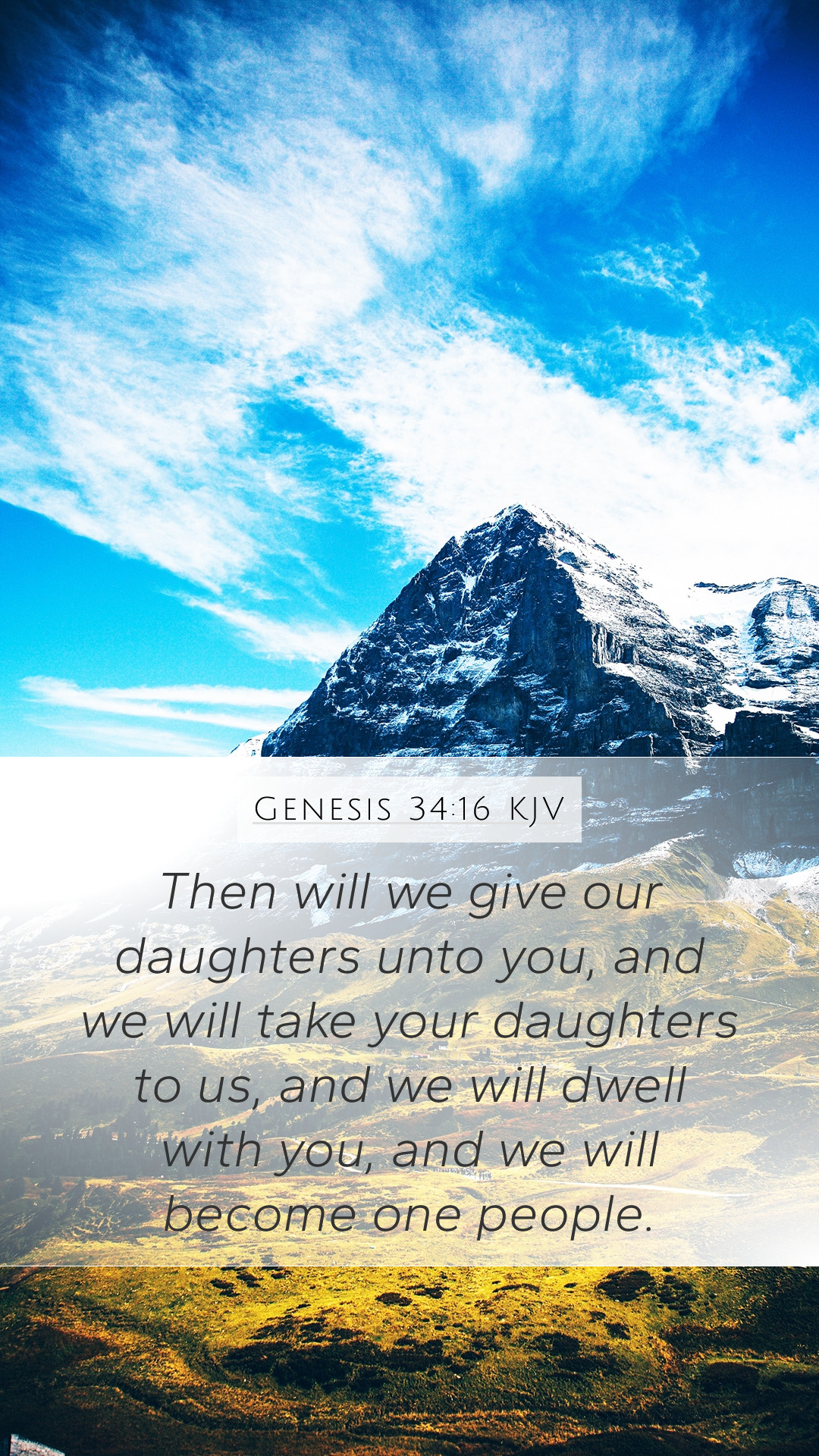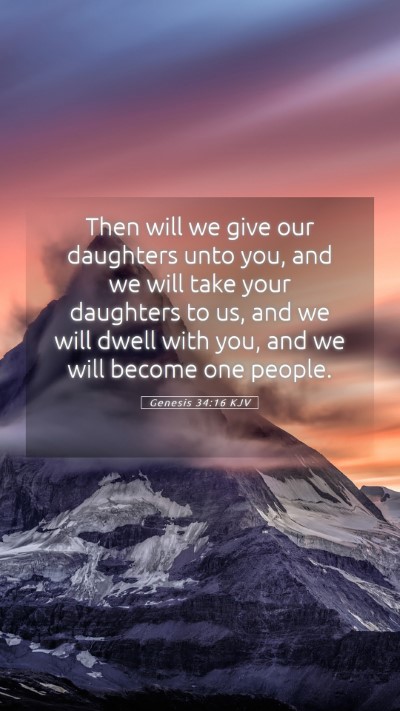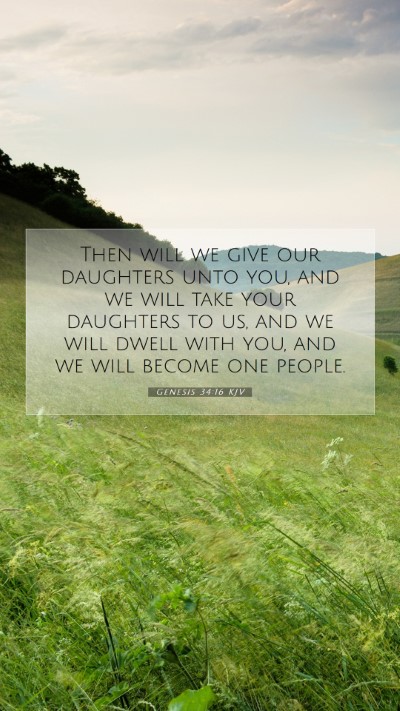Understanding Genesis 34:16
Genesis 34:16 states, "Then will we give our daughters unto you, and we will take your daughters unto us, and we will dwell with you, and we will become one people."
This verse occurs in the context of a serious and troubling incident involving Dinah, the daughter of Jacob. She is described as being violated by Shechem, a prince of the land. This led to a series of events that involved negotiations between Jacob's sons and Shechem's family.
Insights from Public Domain Commentaries
- Matthew Henry: Henry emphasizes that this verse reveals Shechem’s desire to make amends for his actions through engagement. However, the proposal is not merely a simple offering but is laden with the underlying issues of morality and intermarriage between different communities.
- Albert Barnes: Barnes notes that the response from Jacob’s sons showcases both their shrewdness and the gravity of the situation. They cleverly present an ultimatum wrapped in the guise of a willingness to unite the families. This can be seen as a strategic maneuver to safeguard their honor and their sister’s dignity.
- Adam Clarke: Clarke offers a philosophical perspective, interpreting this verse as indicative of the human tendency to seek reconciliation through the bonds of marriage, even amidst conflict. He suggests that this reflects a deeper aspect of community formation and personal relationships in the ancient world.
Meaning and Context
In analyzing Genesis 34:16, it is essential to understand not only the words but the context. The negotiation for marriages signifies a contractual relationship between two parties that transcends mere romantic inclination; it reflects alliances forged amidst strife. The offer made here symbolizes both a desire for peace and the complexities that arise from it, demonstrating the depth of emotions involved in such a critical moment.
Historical Context
The ancient Near Eastern context reveals that relationships often entailed significant political and economic implications. Marriages were a means to establish alliances and secure familial safety. Thus, this verse encapsulates both the societal norms of the time and the personal tragedy experienced by Dinah.
Bible Study Insights
- Understanding the motives behind Shechem's offer elucidates human behavior in seeking reparations.
- Examining the reactions of Jacob's family can shed light on the themes of honor, justice, and vengeance in biblical narratives.
- Reflecting upon the implications of intermarriage in the biblical context can enhance our understanding of God’s laws regarding the separation of His people from others.
Applications to Daily Life
In modern contexts, Genesis 34:16 can compel readers to consider the importance of communication in conflict resolution. Just as Shechem attempted to resolve his grievous offense by proposing marriage, we too must approach our conflicts with humility and a desire for genuine reconciliation.
Cross References
- Genesis 34:1-2: The initial incident with Dinah.
- Exodus 34:15: Warnings against intermarriage with surrounding nations.
- Deuteronomy 7:3-4: God’s command regarding marriage with pagans.
Conclusion
The verse from Genesis 34:16 serves as a profound reminder of the complexities of human relationships and the moral implications of our actions. Through careful exegesis and application, we can glean valuable insights that not only enrich our understanding of Scripture but also guide us in our daily lives.


